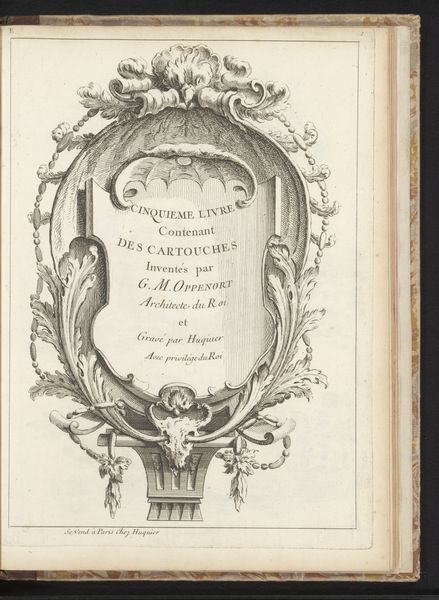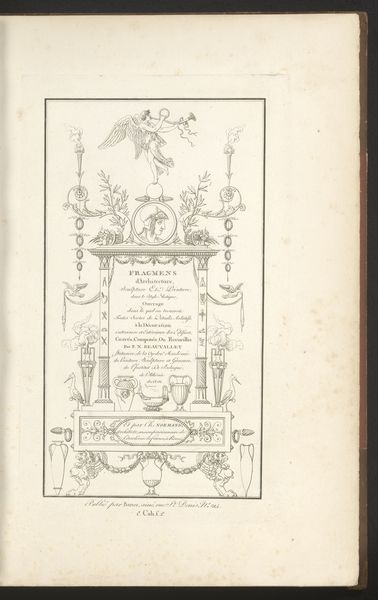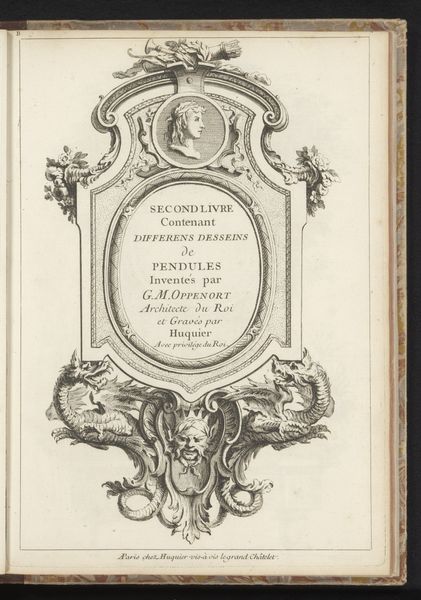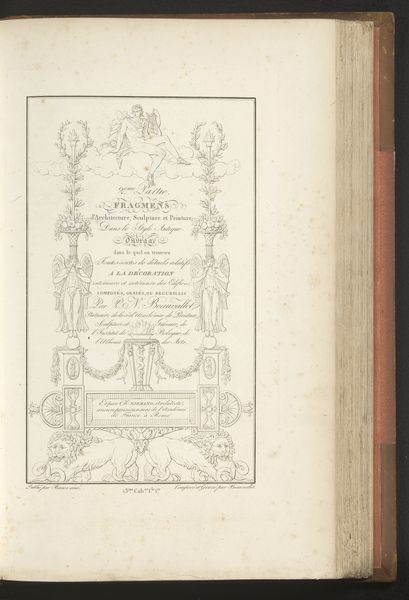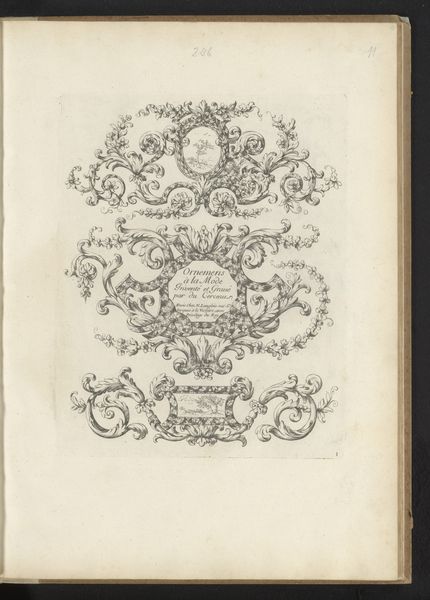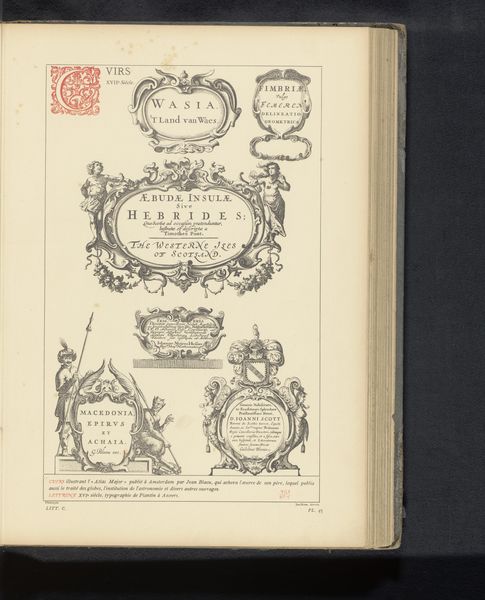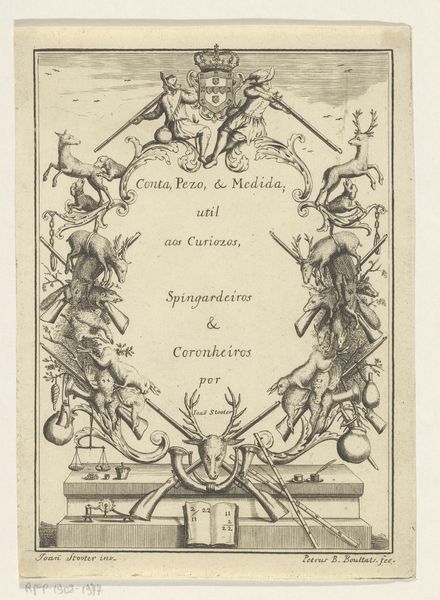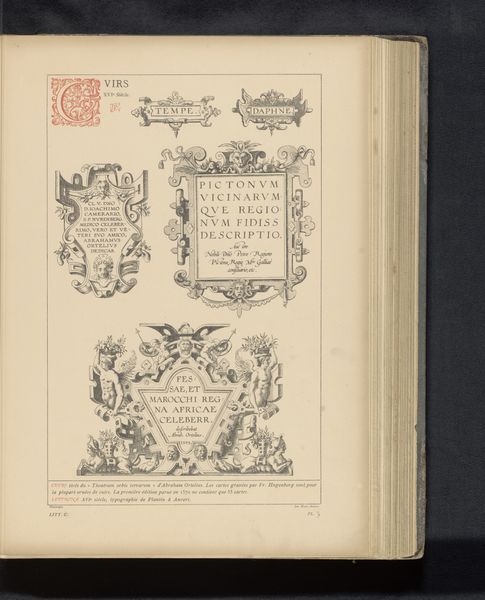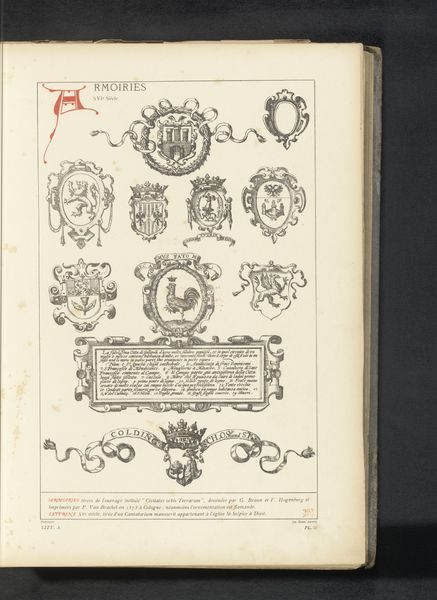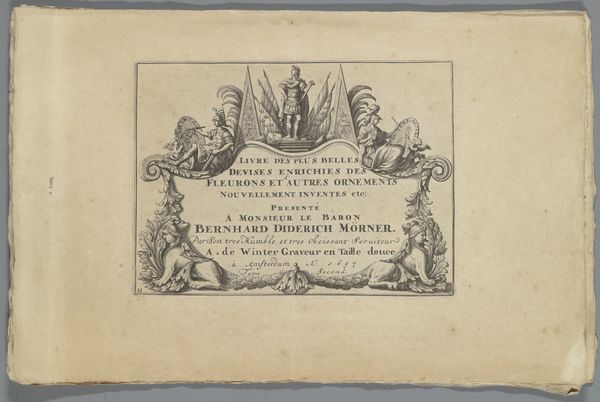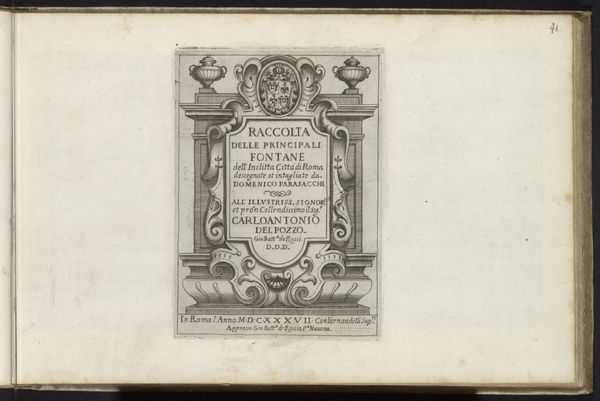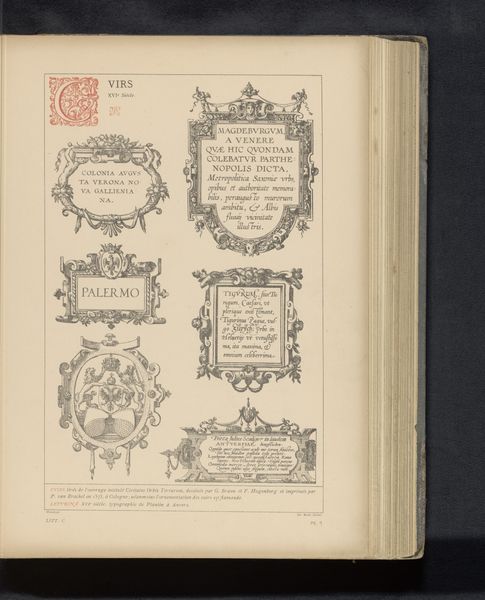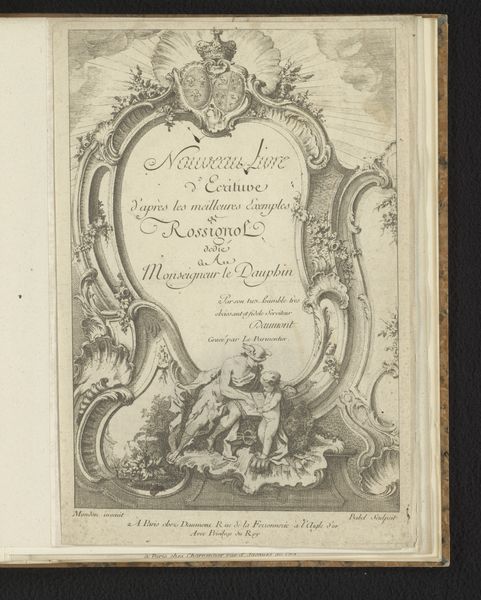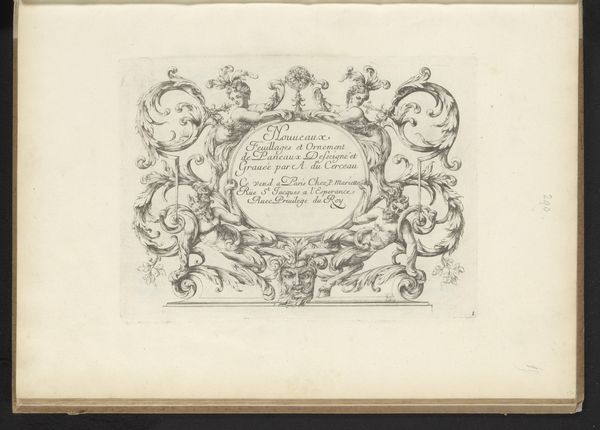
drawing, ornament, print, paper, ink, engraving
#
drawing
#
ornament
#
baroque
# print
#
paper
#
ink
#
engraving
Dimensions: height 324 mm, width 242 mm
Copyright: Rijks Museum: Open Domain
Editor: So, here we have "Titelprent voor een serie ontwerpen voor friezen," a print made around 1725-1750 by Gabriel Huquier. It's this incredibly ornate baroque title page. The cherubs on the central vase almost look like they’re struggling. What's your take? Curator: This piece embodies the theatricality and grandeur of the Baroque, but let's look closer. Consider the role of ornament during this period. It wasn't simply decoration, was it? These swirling designs and cherubic figures reinforced the power structures of the time. Think about the "Architecte du Roi" mentioned in the title. Editor: Right, architect to the king… So these friezes, they’re not just pretty; they’re projecting royal authority. But does the playfulness of the cherubs undercut that at all? Curator: Perhaps slightly, yes, but within a tightly controlled framework. They’re idealized, European, infantile. Do you see any visual references to non-European artistic traditions, or even representations of diverse European populations? It highlights a very specific and exclusive world of power. What does this tell us about who gets to participate in, or benefit from, this display of wealth and artistic skill? Editor: I hadn't thought about it that way – who is excluded. It's almost like these elaborate designs are acting as a kind of gatekeeper. So the aesthetic *is* political. Curator: Exactly! And consider how these designs would have functioned within specific architectural spaces. They dictate movement, create hierarchies, and reinforce a specific worldview. Editor: That gives me a lot to think about. It is more than just decorative swirls; they communicate and solidify the dominant cultural values. Curator: Precisely. Art serves as a powerful instrument to reflect, challenge, and sometimes perpetuate prevailing political sentiments and cultural biases.
Comments
No comments
Be the first to comment and join the conversation on the ultimate creative platform.
